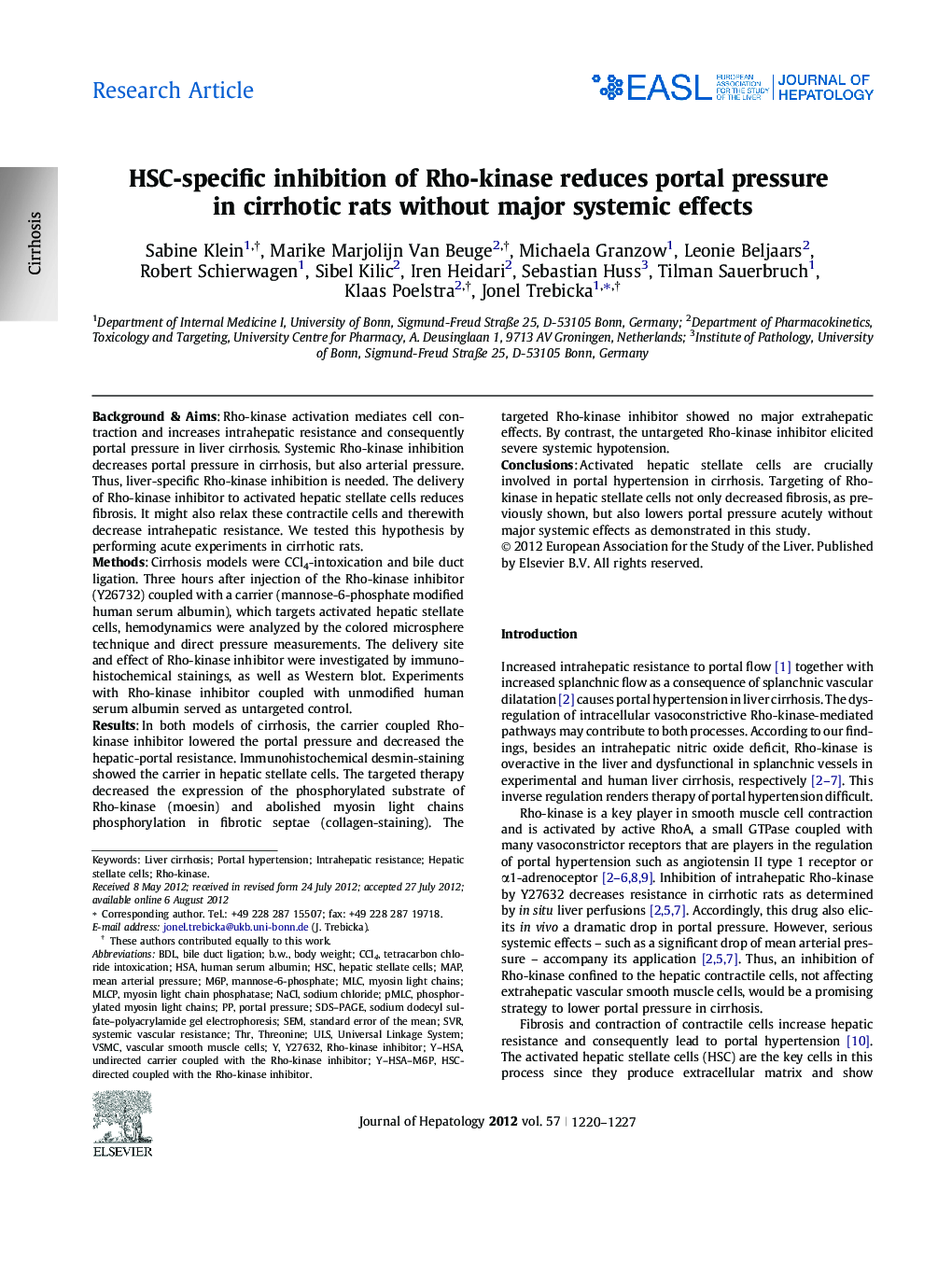| Article ID | Journal | Published Year | Pages | File Type |
|---|---|---|---|---|
| 6106203 | Journal of Hepatology | 2012 | 8 Pages |
Background & AimsRho-kinase activation mediates cell contraction and increases intrahepatic resistance and consequently portal pressure in liver cirrhosis. Systemic Rho-kinase inhibition decreases portal pressure in cirrhosis, but also arterial pressure. Thus, liver-specific Rho-kinase inhibition is needed. The delivery of Rho-kinase inhibitor to activated hepatic stellate cells reduces fibrosis. It might also relax these contractile cells and therewith decrease intrahepatic resistance. We tested this hypothesis by performing acute experiments in cirrhotic rats.MethodsCirrhosis models were CCl4-intoxication and bile duct ligation. Three hours after injection of the Rho-kinase inhibitor (Y26732) coupled with a carrier (mannose-6-phosphate modified human serum albumin), which targets activated hepatic stellate cells, hemodynamics were analyzed by the colored microsphere technique and direct pressure measurements. The delivery site and effect of Rho-kinase inhibitor were investigated by immunohistochemical stainings, as well as Western blot. Experiments with Rho-kinase inhibitor coupled with unmodified human serum albumin served as untargeted control.ResultsIn both models of cirrhosis, the carrier coupled Rho-kinase inhibitor lowered the portal pressure and decreased the hepatic-portal resistance. Immunohistochemical desmin-staining showed the carrier in hepatic stellate cells. The targeted therapy decreased the expression of the phosphorylated substrate of Rho-kinase (moesin) and abolished myosin light chains phosphorylation in fibrotic septae (collagen-staining). The targeted Rho-kinase inhibitor showed no major extrahepatic effects. By contrast, the untargeted Rho-kinase inhibitor elicited severe systemic hypotension.ConclusionsActivated hepatic stellate cells are crucially involved in portal hypertension in cirrhosis. Targeting of Rho-kinase in hepatic stellate cells not only decreased fibrosis, as previously shown, but also lowers portal pressure acutely without major systemic effects as demonstrated in this study.
